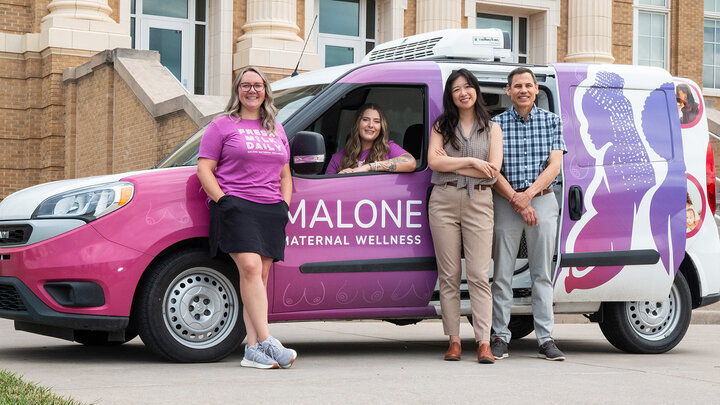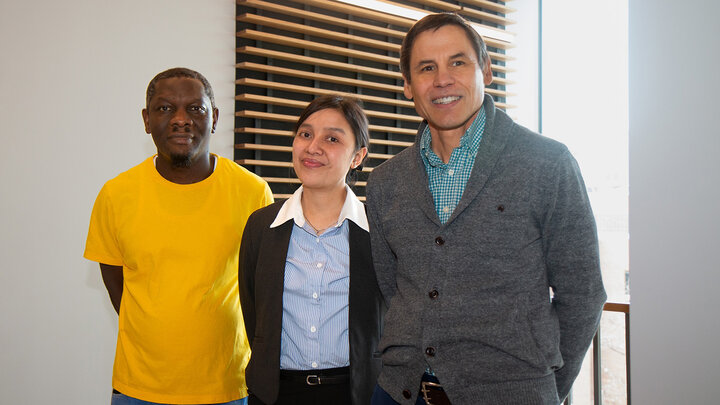Children who are breastfed as infants are less likely to develop obesity. However, despite recommendations from the Centers for Disease Control and Prevention, only 25% of infants in the U.S. are exclusively breastfed for the first six months.
As many as 70% of mothers experience problems with breastfeeding, contributing to lower rates — particularly among Black Americans (17.2%) and rural residents (18%). Research suggests these low breastfeeding rates may compound potential nutrition-related health disparities from the start of life.
With funding from Great Plains IDeA-CTR at the University of Nebraska Medical Center, Patty Kuo, associate professor of child, youth and family studies, and Alex Mason, professor of child, youth and family studies and CYFS, are partnering with Malone Maternal Wellness for a yearlong evaluation of an innovative, community-led breastmilk sharing program.
Kuo and Mason are exploring ways to enhance the Malone Milk Share Program, which provides free breastmilk to anyone regardless of income, race or ethnicity.
The research team will survey 25 participants and 25 non-participants to establish the program’s feasibility and acceptability.
Jillian Boldt, director of Malone Maternal Wellness, said the evaluation project is essential to the milk share program’s future and possible expansion.
“There are so many maternity care deserts out in western Nebraska that could benefit from a program like this,” she said. “But potential funders want to see that it’s effective. That’s where the data from this project come in.”
Founded in 2023, Malone Milk Share is the nation’s only community-based program that facilitates breastmilk sharing through informed donor screening, and human milk storage and delivery aligned with international safety standards.
Since the program’s launch, more than 19,600 ounces of milk have been delivered. By Boldt’s calculations, that has saved families nearly $113,000.
“Most babies drink 24 to 32 ounces a day,” Boldt said. “With some milk banks charging $6.25 an ounce, that adds up quickly.”
Milk is delivered to recipients by the Malone Center’s Milk Mobile, within a two-hour radius of Lincoln and Omaha, in Nebraska only.
Boldt said the program makes as many as 10 deliveries a week using the Milk Mobile — a specialized van to safely store and deliver the milk — and that Malone consistently receives new inquiries from potential recipients or donors.
“There is definitely a need in the community,” Boldt said.
Kuo and Mason are also partnering with the Bureau of Sociological Research to include some questions in their statewide survey to better gauge Nebraskans’ beliefs and thoughts and knowledge of breastmilk sharing.
“We want to get the pulse on statewide thoughts on breastfeeding and what barriers exist if there is a potential need,” Kuo said. “Through this pilot evaluation, we can identify the ways it is effective, and perhaps eventually do larger studies to see how the model can be scaled up to serve more Nebraskans.”
The community partnership aspect of the project is what most appeals to both Kuo and Mason.
“The unique thing about this is this is a program that is already in place, developed by a community provider in response to needs they have observed in their community,” Mason said. “Partnering with Malone and helping to rigorously evaluate these programs is important.”
Learn more about this project in the CYFS Research Network.
College of Education and Human Sciences
Child, Youth and Family Studies
Comprehensive Health & Well-Being
Strong Communities
CEHS Research News




